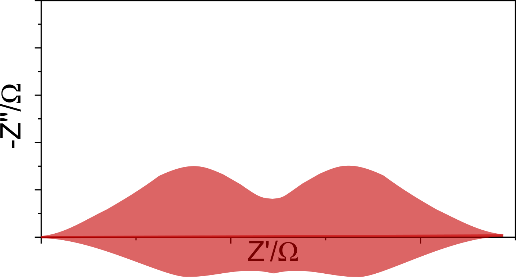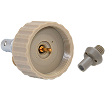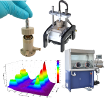 Project KISS
Project KISS
Introduction
Electrochemical impedance spectroscopy (EIS) is an important method for materials characterization. It allows non-destructive physical-chemical processes to be examined to determine key parameters, such as the electrical conductivity of materials, or performance figures such as the state of health (SOH) or state of charge (SOC) of a battery. Thanks to the advancement and wide spread dissemination of modern electrical measurement electronics around 35 years ago, huge amounts of impedance data is now being generated by researchers globally. However, evaluating the data is still very time-consuming and has to be carried out semi-manually by experts, creating a major problem: valuable resources are tied up unnecessarily and important processes are delayed. We invision to give scientists more time to focus more on the findings derived from their data instead of the complex, energy- and time-consuming evaluation of impedance data, in order to provide us all with answers to the pressing questions surrounding the green energy transition, advanced energy conversion techniques and future materials in a shorter time than previously possible. To achieve this, the partners are developing a software solution using machine learning techniques that automatically sorts impedance measurement data, assigns them to physical models and evaluates them, with high precision and robustness. This should enable the information about the electrical processes to be correlated with other properties of the materials. In this way, important predictions could be made with regard to the materials examined for development.
Goals
In the end, the resulting software should:
- Automatically and reliably sort a large amount of impedance spectroscopy data,
- automatically attribute physically meaningful analysis models to the sorted data,
- perform an automated fitting routine with high robustness level of the results,
- help to detect hidden correlations between measured impedance data and metadata,
- be based on a user-friendly, intuitive and lean user interface.
Project Data
As in any machine-learning based project, data quality and availability is of paramount importance. For this reason several sub-projects were designed to impart the project with a solid underpinning of high quality data.
Simulation
Simulating impedance spectroscopy is an excellent first step to enable screening and pre-training of machine-learning architectures. Simulation tools for electrical equivalent circuits are not new, with commercial solutions such as RelaxIS3 and free software solutions such as MADAP being available. However, as these solutions are not well integratable into machine-learning frameworks and/or exhibit poor performance characteristics when integrated into a GPU based training pipeline, a new simulation tool eisgenerator was devised. eisgenerator is a C++ shared library and CLI application that allows one to generate EIS spectra with high performance by leveraging CPU vectorization. For more information you can visit the eisgenerator documentation here
Scraping
To provide a source of real data, a scraping tool for EIS equivalent circuits was designed in order to be able to extract circuits from scientific publications, more here
Automated coincell ageing and mesurment system
To provide a source of data with available metadata a automated system for coincell ageing and mesurement has beend developed, you can find out more about this system here
You
If you have relevant data you are able to share, or wish to inquire for data for your project, please mail:
Other Project Components
Accelerating fits with machine learning
Accelerating fitting with machine learning has been one approach applied in this project to improve the performance of EIS evaluation - see here for more information.Miscellaneous useful tools
Some other useful libraries and utilities were also developed thus far in pursuit of this project:- A library to load RelaxIS3 data files independently of RelaxIS3
- A library to do drt transformations on torch and eisgenerator datatypes
- A library to search for, get metadata about and download documents of scientific publications in an automated fashion
Funding
Details of funding and project partners can be examined here








